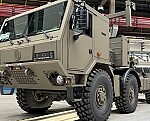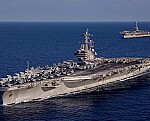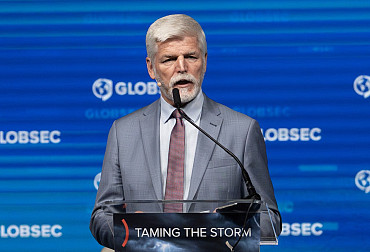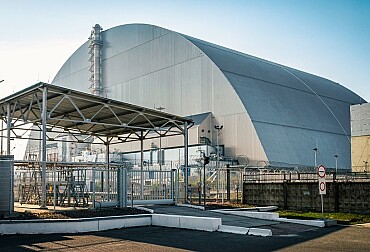High tensions in high places in Kiev – Russia is enjoying the clash between Zelensky and Zaluzhnyi
On 1st February there was a persistent rumour shared on social media that General Valerii Zaluzhnyi, Commander-in-Chief of the Ukrainian armed forces, might be dismissed by President Volodymyr Zelensky. The information immediately spread on social networks and then in some media, sometimes going so far as to claim that the two men had met on Monday and that the chief of staff had been offered the post of ambassador or adviser. What is behind the scenes? Russia is enjoying the situation for sure.
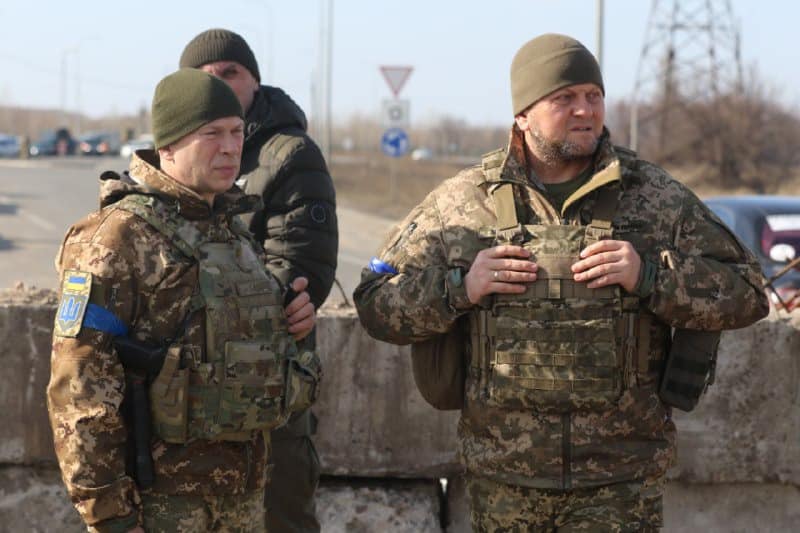
No, it is not true!
The Ministry of Defence issued a strongly worded denial: "Dear journalists, from now on we are telling everyone: no, it's not true". The Presidency also denied this information. Nevertheless, the tensions between Valerii Zaluzhnyi and Volodymyr Zelensky are very real. After the first months of the war and the inevitable "National Union" to conceal rivalries, internal divisions began to emerge in the winter of 2023. President Zelensky has been on an almost permanent tour to try and maintain the essential Western financial and military support for the Ukrainian war effort, and for several months has had to answer for the relative success of his counter-offensive. Like a good politician, he continues to highlight the progress – albeit modest – made by his troops.
According to Ukrainian polls published in December, Valerii Zaluzhnyi remains clearly more popular than Volodymyr Zelensky, with a 92% confidence rating, compared with 77% for the President. In itself, there is no cause for concern, as Zelensky has officially withdrawn from organising the presidential election that was originally due to be held in Ukraine in March. However, dismissing Valerii Zaluzhnyi and opening a breach in national unity seems particularly damaging in the current context. Kiev and Moscow are engaged in an ammunition war via proxy allies. This long conflict means that both sides are consuming a lot of ammunition over time.
It's a long-distance race: the less one advance, the more fortified the enemy defensive system becomes and the more shots one needs, including artillery shells to destroy fortified positions. You're forced to constantly boost support and demand, to avoid stopping deliveries at all costs. Exhausted, the units must also be renewed. On 30th January, an amended version of the draft law on conscription was presented to the Ukrainian parliament, lowering the age of conscripts from 27 to 25. A particularly unpopular measure, which is unlikely to help ease tensions.
But the rumour had some real basis
According to several Ukrainian and Western media reports, the two men did indeed meet on Monday evening and raised the subject in what was described as a heated discussion. The Ukrainian president is said to have offered the general other posts such as military adviser which he eventually turned down. According to the BBC and the New Voice of Ukraine magazine, it was opposition from Kiev's Western allies that forced the President to postpone his decision. But for how long?
The country has been waiting ever since, anxious to see the army part company with this leader adulated by the public and the military. Appointed to this post by Volodymyr Zelensky in July 2021, just seven months before the start of the Russian invasion, Valerii Zaluzhnyi is in their eyes a hero, the man under whose orders they managed to repel the Russian advance against all odds. Despite the failure of the counter-offensive in the summer of 2023, this 50-year-old leader, who is reputed to be close to his soldiers, is still crowned by the polls as the most popular man in the country, ahead of the President. Zelenski. And this is surely one of the cruxes of the problem.
In the first few days of the invasion, Zelensky and Zaluzhnyi certainly gave the impression of a symbiotic relationship, each concentrating on what he knew best: the president was increasing his communications to reassure the population and ask for help from Ukraine's allies, while the general was focusing on manoeuvres to stem the Russian advance. But relations deteriorated rapidly after the first victories. Once the existential threat had been removed, political considerations were quick to return.
As early as 2022, several opinion polls commissioned by Volodymyr Zelensky's team identified Valerii Zaluzhnyi as the only person capable of competing with the President in the elections. This vigilance turned to suspicion after the commander-in-chief set up a foundation in his name in April 2022 to raise funds for the army. Although the general denied any plans to run in the elections in 2024, several of his aides told me that he was still open to the idea.
The military reasons
But there are also military reasons for the discord. According to the same source, in the spring of 2022, President Zelensky, after giving his general-in-chief free rein, began to define military priorities that were not always in line with his own. Anxious to show results, the presidential administration increased its requests to launch operations to reconquer the territory as quickly as possible. Against the advice of Valerii Zaluzhnyi, Volodymyr Zelensky approved an offensive in the Kharkiv area, which proved to be a great success and liberated the region, but also changed relations between the President and the General.
Eager to show further success in consolidating the support of the American and European allies, the President insisted in the following months on launching a major counter-offensive as soon as possible. Cautious, the general preferred to postpone, waiting for more Western equipment to arrive in Ukraine. When the operation was finally launched in June, the General criticised the President’s administration for having interfered with his orders by maintaining direct links with several officers in charge of the offensive.
The counter-offensive ended in failure, as the Russian lines gave way without breaking. All that remained was to draw conclusions. For the General, they are clear: the conflict is now at an "impasse", he says in a resounding text published by the British magazine The Economist. Unprepared, the Ukrainian President was irritated to hear the news, even though he refuses to use the term. In his eyes, to speak of a stalemate implies acknowledging that the conflict is stagnating, which risks discouraging Western support. "Time has passed, people are tired, but it's not a stalemate", he corrected three days later at a press conference in Kiev.
The recent debates around the new law on mobilisation currently being studied by the Ukrainian parliament provided a further illustration of the disagreements between the President and the Commander-in-Chief. According to Volodymyr Zelensky, the General Staff has asked for between 450,000 and 500,000 men to be mobilised to rotate the troops who have been serving under the flag since the start of the invasion. A potentially unpopular request, from which he seemed to distance himself, saying he was not convinced of the need to call up so many new soldiers. A week later, on 26th December, Valerii Zaluzhnyi contradicted him at a rare press conference, claiming that the General Staff had not requested the figures announced by the President.
When they arrived, relations between the two men were said to be so bad that they no longer met face-to-face, but only at staff meetings, according to a member of the security committee at the Parliament. However, it seems that finding a successor to Ukraine's most adored man is not so easy. According to NV magazine, Ukrainian military intelligence chief Kyrylo Budanov and army chief Oleksandr Syrskyi have both been approached to replace Valerii Zaluzhnyi. Both are said to have refused.





